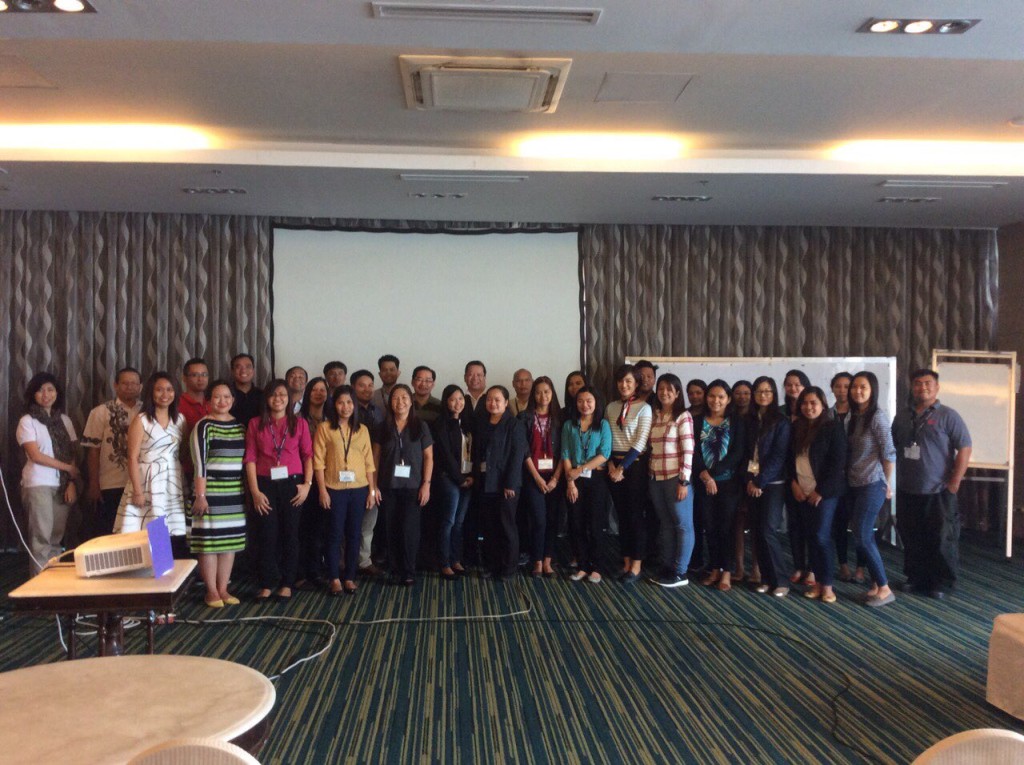
05 Dec Seminar on Global Chemical Regulations and Food and Food Contact Materials
The Samahan sa Pilipinas ng mga Industriyang Kimika (SPIK) conducted the Seminar on Global Chemical Regulations and Food and Food Contact Materials on December 1-2, 2016 at the Hotel H2O, Manila attended by fifty (50) participants from the chemical, food, plastic, petrochemical, Oleochemicals and coatings sector.
The seminar, according to Ms. Gretchen Fontejon-Enarle, SPIK President, is the “Association’s last major activity in 2016. The seminar will focus on the emerging global chemical regulations that have great impact in the chemical and food industry.”
Mr. Nilo Rebay, Environmental, Health, Safety and Security Manager of HGST Philippines, a Western Digital Company, opened the seminar with the discussion on Registration, Evaluation, Authorization and Restriction of Chemicals (REACH). It is a regulation of the European Union dated 18 December 2006, adopted to improve the protection of human health and the environment from the risks that can be posed by chemicals, while enhancing the competitiveness of the EU chemicals industry. It also promotes alternative methods for the hazard assessment of substances in order to reduce the number of tests on animals.
On the other, An Introduction: Restrictions on Hazardous Substances (RoHS) and Waste Electrical and Electronic Equipment (WEEE) was presented by Mr. John Oliver Basco of ROHM Electronics Phils., Inc. RoHS, also known as Lead-Free, stands for Restriction of Hazardous Substances. RoHS, also known as Directive 2002/95/EC, originated in the European Union and restricts the use of six hazardous materials found in electrical and electronic products namely; Lead (Pb), Mercury (Hg), Cadmium (Cd), Hexavalent Chromium (Cr VI), Polybrominated Biphenyls (PBB) and Polybrominated Diphenyl Ethers (PBDE).
Ms. Emmanuelita Mendoza of the Chemical Management Section of DENR-EMB, discussed the country’s contribution to the Strategic Approach to International Chemical Management (SAICM) and how it influences the industrial chemical regulations in the Philippines. SAICM is a policy framework to foster the sound management of chemicals. It was adopted by the International Conference on Chemicals Management (ICCM) on 6 February 2006 in Dubai, United Arab Emirates.
The participants were able to access the website of ASEAN-Japan Chemical Safety Database during the online training session facilitated by Mr. Junya Inose of the Mitsubishi Research Institute. The AJCSD is a free, public online database that provides you with regulatory information on a hundred thousand chemicals in ASEAN and Japan. The AJCSD was co-developed by ASEAN and Japan as a powerful tool to support business on chemicals.
The Food Safety Act of 2013 was presented by Mr. Timothy Moises Mendoza of the Food and Drug Administration. The salient features and the Implementing Rules and Regulations (IRR) of R.A 10611 were discussed in detail. In connection to this topic, Dr. Elias Escueta, Consultant on Food Science, Nutrition and Environment introduced the topic on Food Contact Material Regulation from US, EU, Japan, China, South Korea, Australia-New Zealand and the Philippines. The presentation also covered analytical methods for testing food contact material, and the migration testing and exposure assessment of chemicals in foods.
FSSC 22000: Food Safety System Certification was discussed by Ms. Genelyn F. Macaya, Consultant, Quality Plus Management Consulting. FSSC 22000 is a management system standard on food safety that can be used as the basis of any food safety management system, with or without 3rd party certification.
The latter part of the seminar was a best practice sharing on pesticide application standards in food manufacturing industries, fumigant gases and classification of pesticides based on toxicity and hazard from Ms. Charisma Escaño and Mr. Gabriel Salazar of Sterix Incorporated- Philippines and Ms. Riegine Reyes of Syngenta Philippines respectively.
The two-day seminar ended with closing remarks from Dir Jesus Laguitao, SPIK Vice President.
